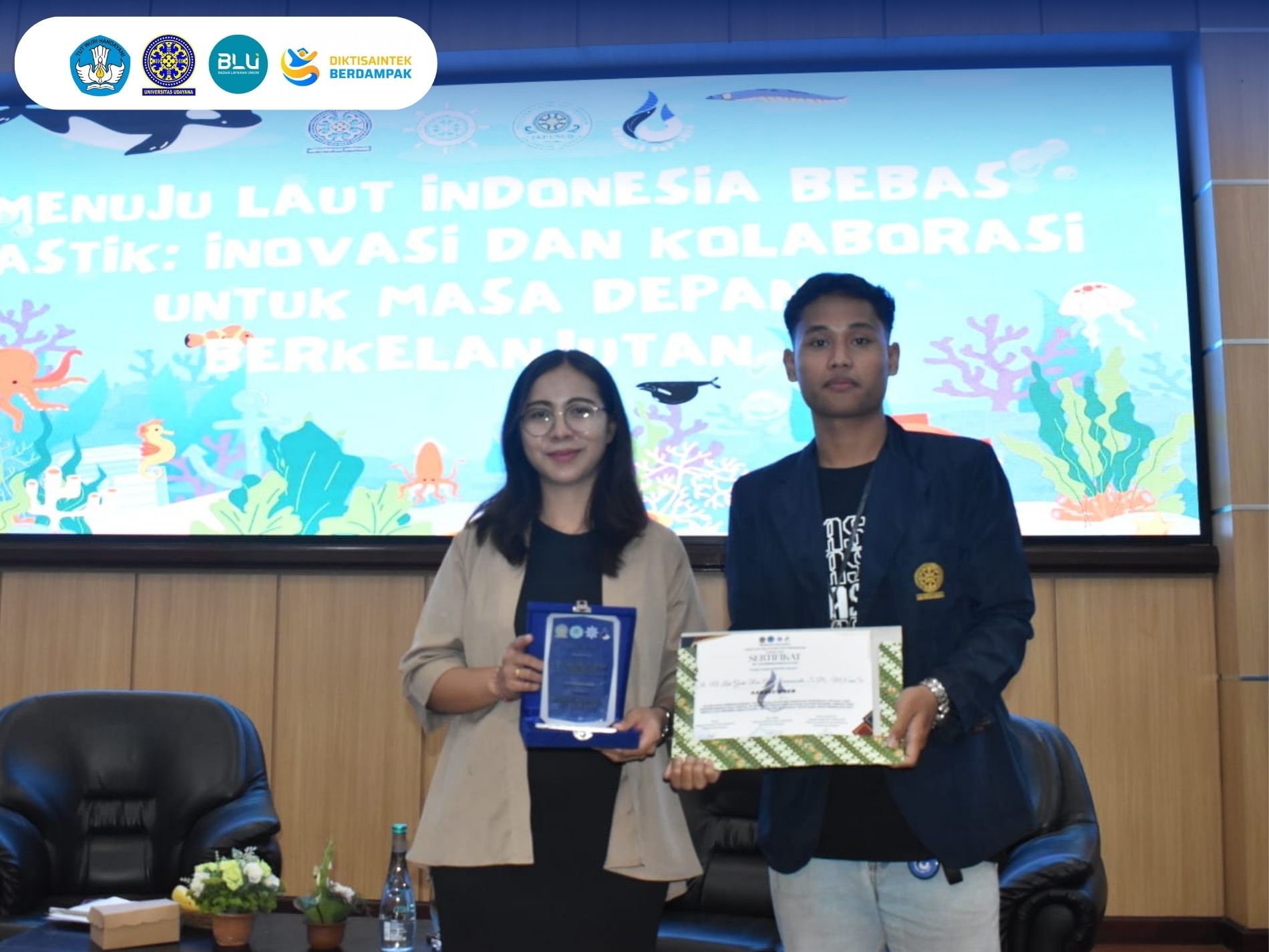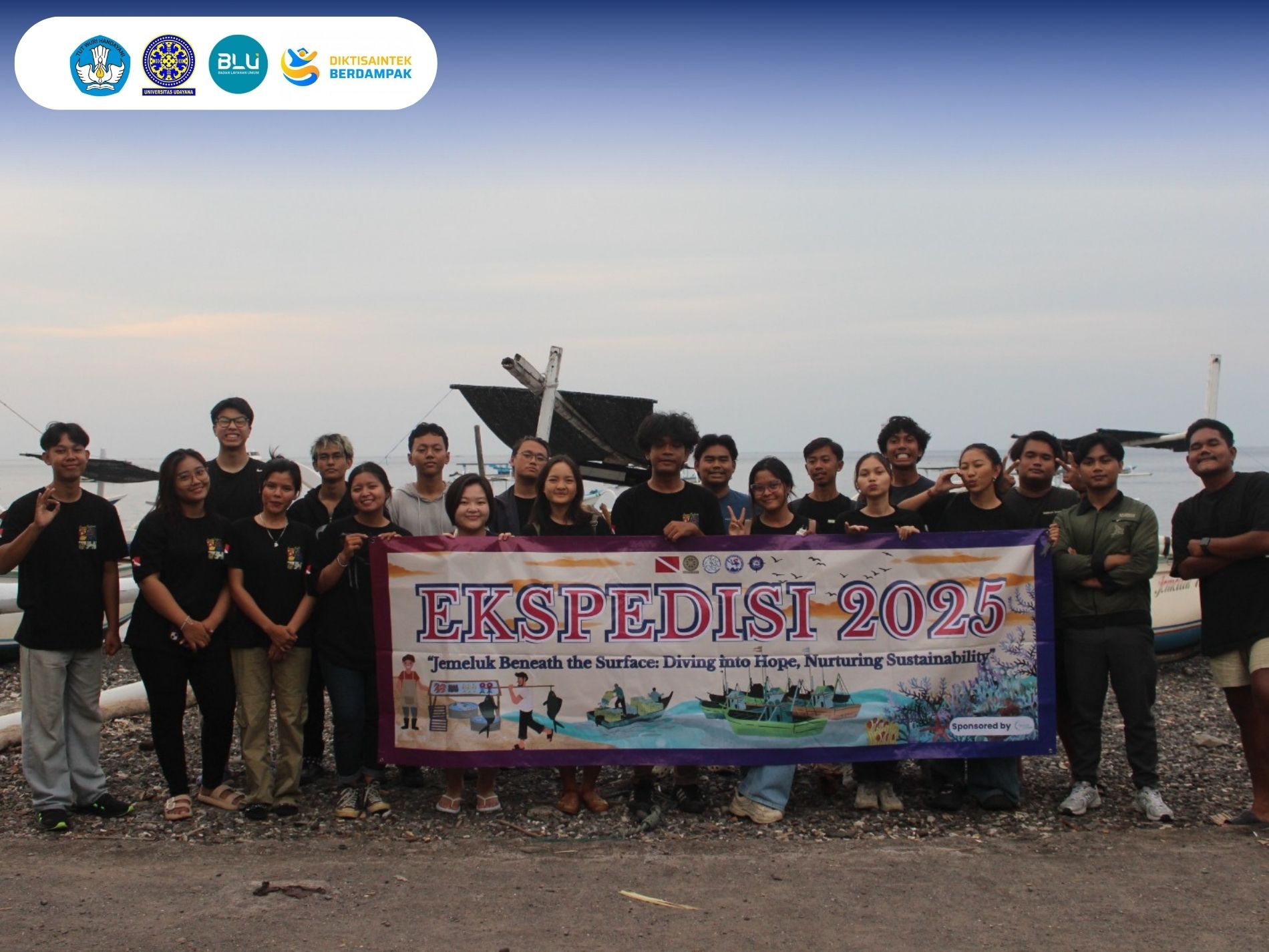PLASTIC-FREE OCEAN: Building Innovation and Collaboration Toward a Sustainable Indonesian Ocean National Seminar of the Faculty of Marine and Fisheries, Universitas Udayana 2025
The Faculty of Marine and Fisheries, Universitas Udayana, once again held its annual National Seminar (SEMNAS) 2025 with the theme "Towards a Plastic-Free Indonesian Ocean: Innovation and Collaboration for a Sustainable Future." This event was initiated by the Student Executive Body (BEM) of the Faculty of Marine and Fisheries, specifically by the Department of Education, Research, and Development, as a way to provide an in-depth introduction to students about the serious challenges caused by the increasing pollution of the ocean, particularly due to single-use plastics.
Data shows that Indonesia is one of the largest contributors to ocean plastic waste globally, which directly impacts ecosystem health, the sustainability of fisheries, and the livelihoods of coastal communities dependent on the sea. The main goals of this event are to:
-
Raise awareness among students and the wider community about the urgency of plastic waste issues in Indonesian seas.
-
Encourage the generation of innovative ideas for plastic waste management through cross-sector collaboration.
-
Foster awareness among the younger generation to actively contribute to the preservation of Indonesia's oceans.
-
Provide a platform for knowledge and experience exchange among stakeholders working towards a plastic-free ocean.
This event received full support from the faculty leaders and active participation from students across various study programs. The seminar was opened with a report from the committee chair, Valentino Januardy, followed by a welcome speech from the Chairman of BEM FKP 2025, Ravarizi Rakhman, and officially opened by the Acting Vice Dean for Academic Affairs and Planning, as well as the Vice Dean for Student Affairs and Information, Prof. I Wayan Gede Astawa Karang, S.Si., M.Si., Ph.D. In his speech, he stated:
"We are here today not to discuss a light issue, but a crucial one: plastic waste. Indonesia is facing serious pollution, both on land and at sea. Plastic waste not only damages the beauty of nature but also threatens ecosystems, covering coral reefs, mangroves, and reducing environmental quality. Therefore, the steps taken by BEM and FKP students in addressing this issue are commendable. I hope this seminar will not only be a space for discussion but will also lead to concrete actions in tackling plastic waste. Students are at the forefront of safeguarding Indonesia’s maritime heritage, pioneers who understand the impact of plastic and can educate the public. Let us make this moment a real manifestation of our concern for the oceans and the environment."
The welcome speech was concluded with three taps on the microphone to officially mark the opening of the event.
The National Seminar (SEMNAS) 2025 was held both online and offline, offering significant opportunities for students to explore creative ideas based on Indonesia's maritime and fisheries potential. Easy access to field data in the maritime sector has strengthened this approach. One of the participants, Cristy, shared her positive impression of the event:
"In my opinion, the series of National Seminar 2025 was very well organized. It was not only a platform to introduce the issue of plastic waste but also provided new insights from the materials presented by the speakers. Overall, this event gave a positive impression."
However, significant challenges remain, especially in addressing the growing marine pollution, particularly from single-use plastics.
Overall, the National Seminar (SEMNAS) 2025 was carried out with great enthusiasm, energy, and strong collaboration between the committee, faculty members, and students. This event was not just a discussion forum but also a space for students to actualize themselves as the pioneers of Indonesia’s maritime protection. We hope that this seminar will mark the beginning of a generation capable of taking real action that will positively impact the future of a sustainable ocean.


.jpg)

UDAYANA UNIVERSITY